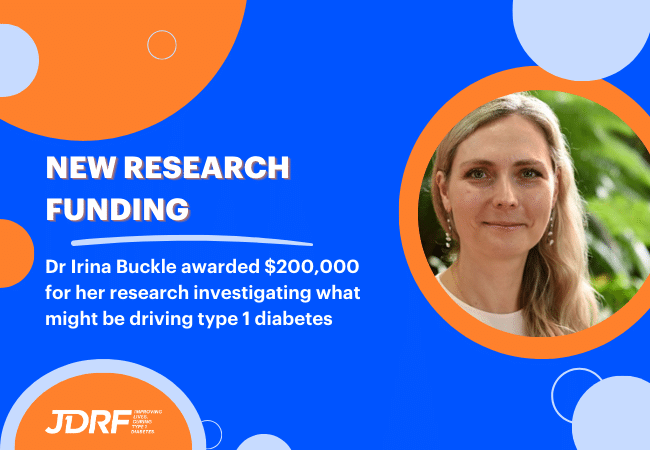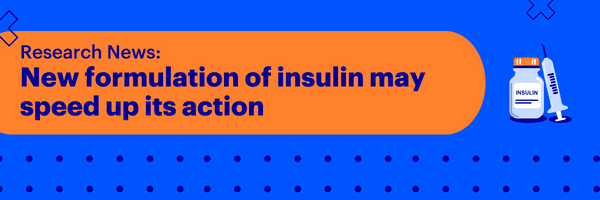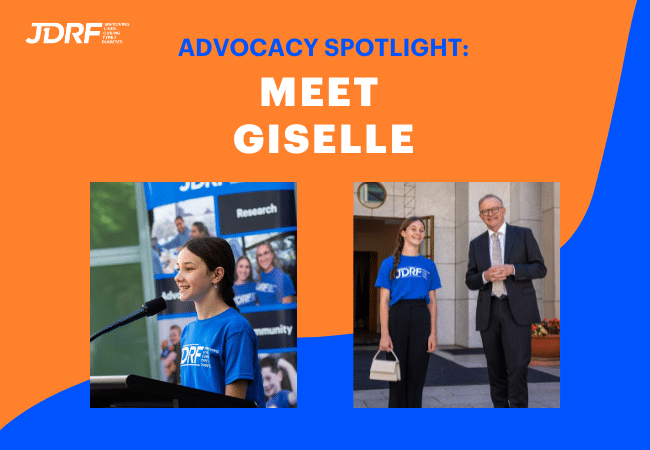Covid vaccines and T1D: FAQs
UPDATED September 2022
Australia has rolled out two COVID-19 vaccines – one from Pfizer, and one from AstraZeneca. Both these vaccines are safe and effective at protecting people against COVID-19, and all Australians are encouraged to get vaccinated.
With vaccines now being offered to people with T1D, we’ve gathered all the information you need to know below.
- When can people with T1D get vaccinated for Covid?
- Can children living with T1D be vaccinated?
- Are Covid vaccines safe for people with T1D?
- Is it safe for elderly people with T1D to get vaccinated?
- Will there be any side effects?
- What about the AstraZeneca vaccine and blood clotting?
- What about my blood sugar levels?
- Can I get Covid from a vaccine?
- Do I have to get vaccinated?
- What about boosters for people living with T1D?
- Is research for a T1D cure still being carried out while Covid is around?
- Are clinical trials still taking place?
- Can I still take part in a clinical trial?
When can people with T1D get vaccinated for Covid?
Adults with diabetes and children aged over 12 with diabetes were included as priority groups in Phase Ib of the COVID-19 National Rollout Strategy in Australia, and they are now available to all Australians. You can check your eligibility and book a vaccination appointment here.
Vaccinations are being offered at GP clinics, Aboriginal Community Controlled Health Services, Commonwealth Vaccination clinics and state and territory vaccination clinics. You can find a list of clinics offering vaccination here.
Can children living with T1D be vaccinated?
The Therapeutic Goods Administration (TGA) has approved the use of the COVID-19 vaccine for children aged six to 17 years of age. You can book an appointment here.
In August 2022, the Australian Technical Advisory Group on Immunisation (ATAGI) recommended that children from 6 months to 5 years who live with type 1 diabetes are immunised for Covid.
On September 7th, the TGA provisionally approved use of the Moderna Spikevax vaccine in high-risk children aged six months to five years, including those who live with T1D. This consists of two vaccinations, at least 28 days apart.
On September 29th, it was announced that the Pfizer Covid vaccine has been approved for use in children aged six months to five years, but ATAGI has yet to announce which children in that age group will be eligible for it.
Are Covid vaccines safe for people with T1D?
The vaccines available in Australia are safe, and there is no evidence that people with T1D respond any differently to the rest of the population.
All vaccines are thoroughly assessed for safety before they are approved for use in Australia, and safety will continue to be monitored and reassessed during the vaccine rollout.
Is it safe for elderly people with T1D to get vaccinated?
The vaccines are safe to use for elderly people with T1D. In clinical trials, the vaccines were tested in people up to age 90, including some with diabetes. Millions of people in aged care facilities overseas have already been vaccinated.
For frail older people, or those aged over 85, the benefits and risks of vaccination should be discussed with a healthcare professional. The Department of Health has information on decision making here.
Will there be any side effects?
Based on experiences overseas, most of the side effects from the Pfizer and AstraZeneca vaccines are mild. You might experience a sore arm or redness, feel tired or have a mild fever. These side effects are a normal response to vaccination and should go away in a few days.
What about the AstraZeneca vaccine and blood clotting?
Thrombosis with thrombocytopenia syndrome (TTS) is a very rare side effect of the AstraZeneca vaccine. It is different from other types of blood clot, like deep vein thrombosis, and there is no evidence that people with type 1 diabetes are at a higher risk of developing TTS.
What about my blood sugar levels?
Some people with T1D experience a temporary impact on blood sugar levels after receiving a vaccine. Check your levels frequently in the 48 hours after being vaccinated, stay hydrated, and familiarise yourself with your sick day plan.
If you have concerns about any potential side effects, it’s best to talk to your healthcare team.
Can I get Covid from a vaccine?
No, you cannot get Covid from receiving a vaccine.
Do I have to get vaccinated?
Covid vaccination is voluntary, but strongly encouraged for all Australians. If you’re hesitant about getting vaccinated, we recommend talking to your healthcare team about your concerns and asking questions to help you make an informed decision.
What about Covid vaccine boosters for people living with T1D?
While boosters aren’t mandatory, it’s recommended that people who live with T1D who are aged 16 to 49 get booster vaccinations to help maintain their immunity against Covid. Speak to your healthcare team about your particular case.
People who are 16 years and older and who had the second dose of their Covid vaccine are eligible for a vaccine booster (third dose), as are people aged 50 and over (fourth dose). Boosters must be given at least three months after the last vaccination.
Is research for a T1D cure still being carried out while Covid is around?
Yes, we are working hard with our researchers to ensure that their vital research to cure, treat and prevent T1D does not stop. Most research projects have been impacted in some way by the Covid pandemic. Some projects are continuing as planned with little disruption, while others are making changes that allow them to continue in a reduced capacity.
In all cases, JDRF is working with research teams to understand their individual situations and develop solutions that will allow their research to continue.
Are clinical trials still accepting participants?
Many clinical trials have changed their processes to ensure that they can continue to operate, while prioritising participant safety and complying with social distancing guidelines. These changes are evolving all the time as circumstances change, but currently include:
- conducting visits over the phone rather than in person
- assisting patients to collect their own samples or data, e.g. for trials involving saliva samples or CGM readings
- sending out questionnaires for participants to fill in
- monitoring all participants with regular check-ins via phone or video.
Some clinical trial sites are open and still conducting in-person appointments. In this case, new measures have been implemented to ensure the safety of trial participants. These measures are in line with current government advice around hygiene and social distancing, as well as individual hospital and institute guidelines.
Can I still take part in a clinical trial?
Yes, there are still clinical trials that are looking for participants. You can find current Australian T1D clinical trials through JDRF’s Trial Finder.
More information on Covid-19 vaccines:
Diabetes Australia
Australian Government Department of Health
Therapeutic Goods Administration




